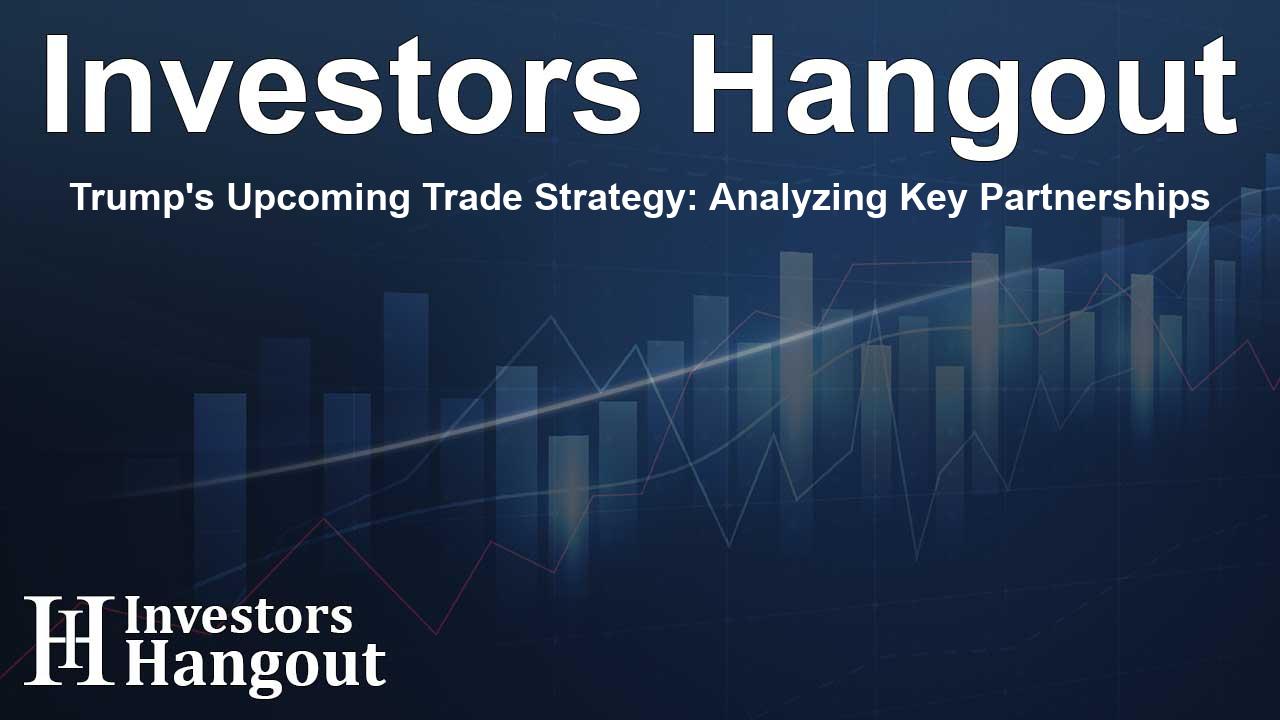Trump's Upcoming Trade Strategy: Analyzing Key Partnerships

Trump's Trade Strategy Overview
Donald Trump is preparing to unveil a significant trade memo shortly after taking office. This memorandum will lay the groundwork for his administration’s trade policies, emphasizing the evaluation of current U.S. trade agreements instead of immediately imposing new tariffs. According to an official from the Trump transition team, the focus will be on assessing the country’s trade relationships with important players like China, Canada, and Mexico.
Evaluating Import Tariffs
In earlier statements, Trump indicated plans for substantial tariffs, including a proposed 10% on all global imports, a staggering 60% on products made in China, and a 25% surcharge on goods from Canada and Mexico. However, the incoming administration has decided to hold off on these tariffs initially, choosing instead to conduct a thorough analysis of existing trade dynamics.
Addressing Trade Deficits
One of the central themes of this upcoming memo will be the investigation of persistent trade deficits. The goal is to identify unfair trade practices and currency manipulation by other nations. This will likely set the stage for more focused discussions on how the U.S. can renegotiate or enhance its trade deals to better reflect American economic interests.
China Under Scrutiny
China will be particularly in the spotlight, as the memo aims to evaluate the country's adherence to the trade deal established in 2020. This will involve a closer look at the commitments made by China and how they align with U.S. expectations, as well as the implications for future trade negotiations.
U.S.-Mexico-Canada Agreement (USMCA)
Additionally, the status of the U.S.-Mexico-Canada Agreement, also known as USMCA, will be assessed. This agreement has been crucial in shaping trade policies in North America, and understanding its effectiveness will be essential to Trump's broader trade strategy.
Impacts on Global Trade
As Trump’s administration reflects on these key relationships, the stakes remain high. If new tariffs are eventually imposed, there could be significant ramifications, including altered trade flows and potential retaliatory tariffs from affected countries. This ongoing evaluation will be vital for businesses and economists who are watching closely to gauge how U.S. trade policy may evolve under Trump's leadership.
Frequently Asked Questions
What is Trump's main focus in the upcoming trade memo?
Trump's trade memo will focus on evaluating trade relationships with China, Canada, and Mexico without imposing new tariffs initially.
Are new tariffs expected to be implemented immediately?
No, the plan is to first assess trade agreements before considering any new tariffs.
Which trade agreements will be evaluated?
The memo will evaluate the 2020 trade deal with China and the USMCA agreement.
How might new tariffs affect global trade?
New tariffs could disrupt trade flows, increase costs, and lead to potential retaliatory measures from other nations.
Why is the assessment of trade deficits important?
Understanding trade deficits is crucial to address unfair trade practices and currency policies from other countries effectively.
About The Author
Contact Olivia Taylor privately here. Or send an email with ATTN: Olivia Taylor as the subject to contact@investorshangout.com.
About Investors Hangout
Investors Hangout is a leading online stock forum for financial discussion and learning, offering a wide range of free tools and resources. It draws in traders of all levels, who exchange market knowledge, investigate trading tactics, and keep an eye on industry developments in real time. Featuring financial articles, stock message boards, quotes, charts, company profiles, and live news updates. Through cooperative learning and a wealth of informational resources, it helps users from novices creating their first portfolios to experts honing their techniques. Join Investors Hangout today: https://investorshangout.com/
The content of this article is based on factual, publicly available information and does not represent legal, financial, or investment advice. Investors Hangout does not offer financial advice, and the author is not a licensed financial advisor. Consult a qualified advisor before making any financial or investment decisions based on this article. This article should not be considered advice to purchase, sell, or hold any securities or other investments. If any of the material provided here is inaccurate, please contact us for corrections.
